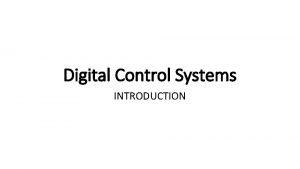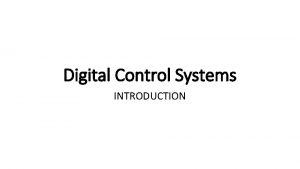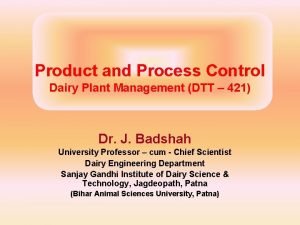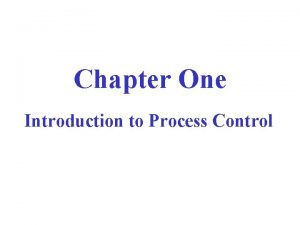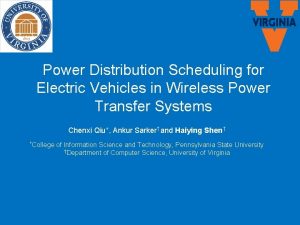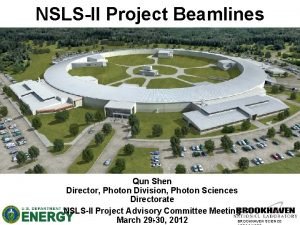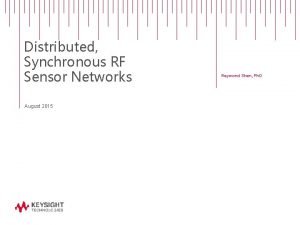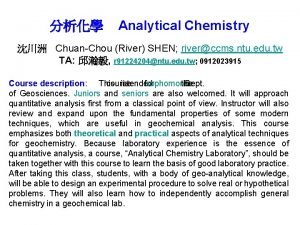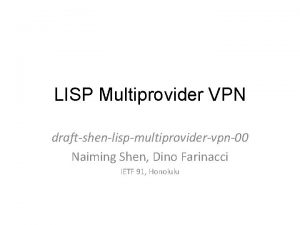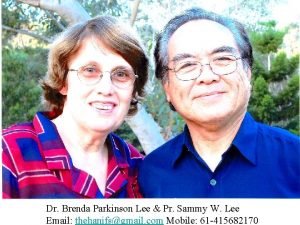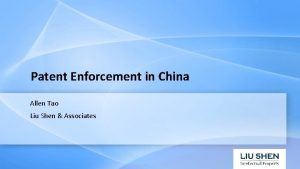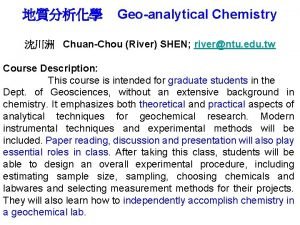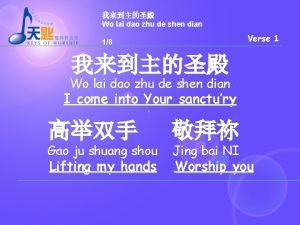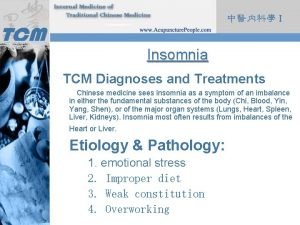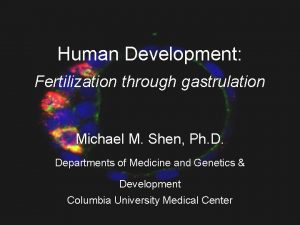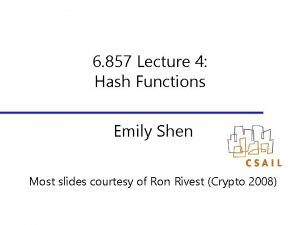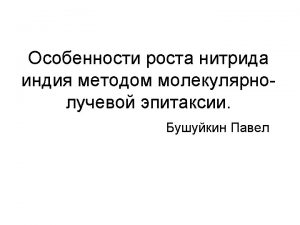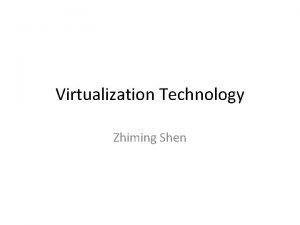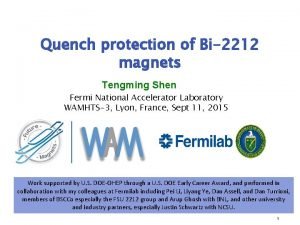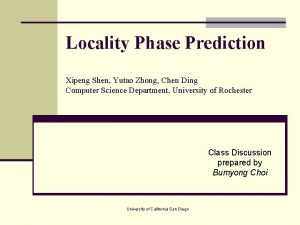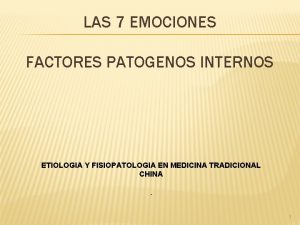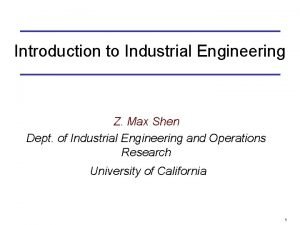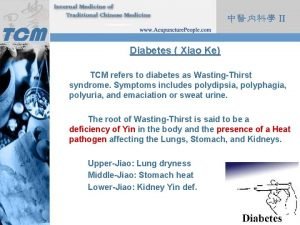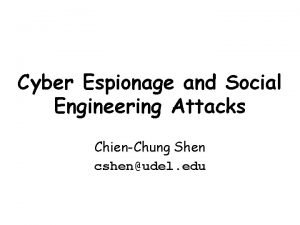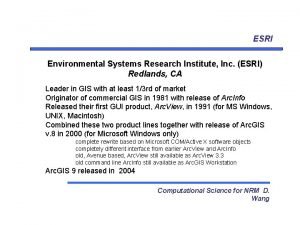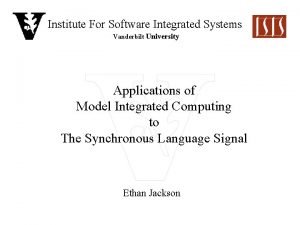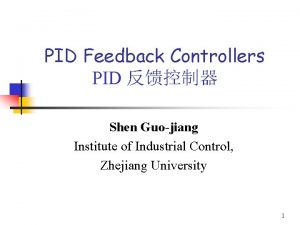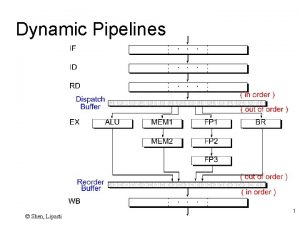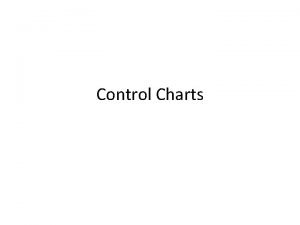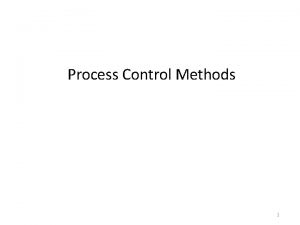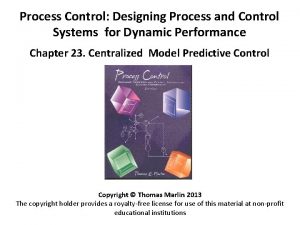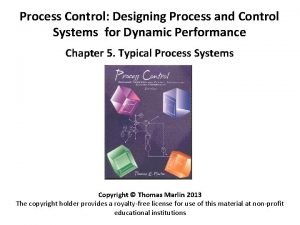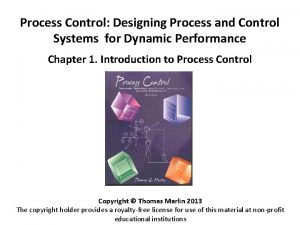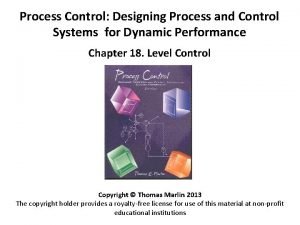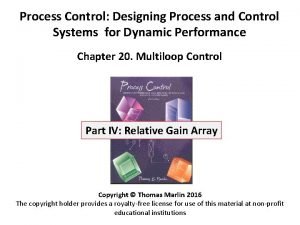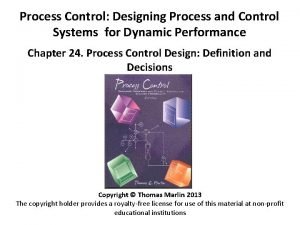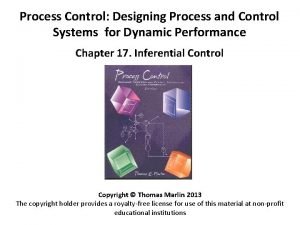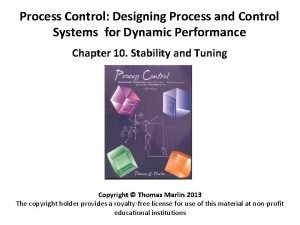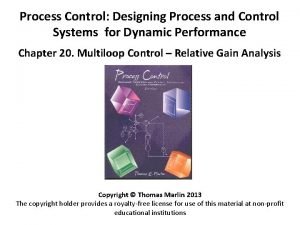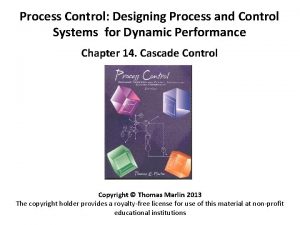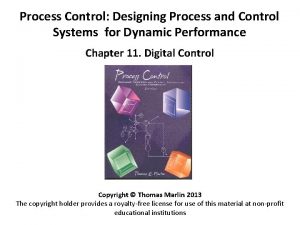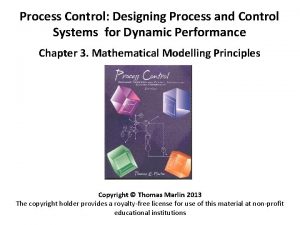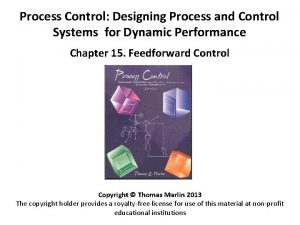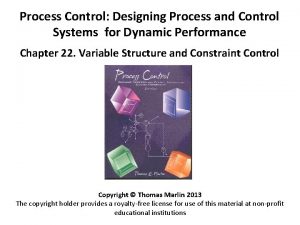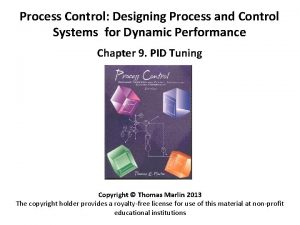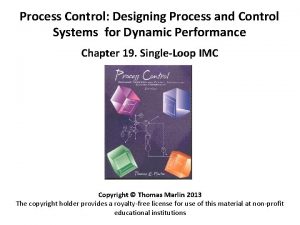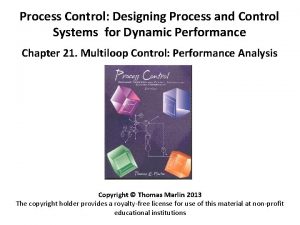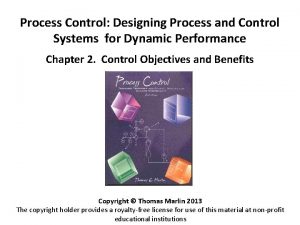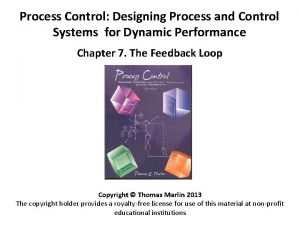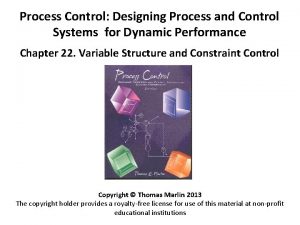Introduction for Process Control Systems Shen Guojiang Institute































- Slides: 31

Introduction for Process Control Systems 过程控制系统概论 Shen Guo-jiang Institute of Industrial Control, Zhejiang University

Contents n n n Origin of Process Control Systems Important Terms and Objective of Process Control Systems Description of Process Control Systems Types of Control Strategies Course Tasks

Systems and Control Systems examples ?

Application of control system n n n The military: flight control Mechanical engineering: centrifugal governor (Watt) Electricity and electronics Process industry (including: petroleum, chemical, metallurgy, pharmaceutical, environmental protection, etc. ) Economy and management system: CPI levels of control Other…

Origin of Process Control Systems Purpose: To maintain the level at a desired operating value, when the inlet flow(输入流 量) changes. Manual Operation: (1) Measure the level by a water gauge and the eye (水位表); (2) Compare the level to its desired value in the brain; (3) Based on this comparison, decide what to do to correct for any deviation (偏差); (4) Manipulate the outlet valve (输出 阀) to correct for the deviation.

Limitations with Manual Control n n n Require the operator to look frequently at the level to take corrective action whenever it deviates from the desired value; Different operators would make different decisions as to how to move the outlet valve, resulting in inconsistent operation (操作的不一致性 ); Require a large number of operators to maintain hundreds of variables in most process plants at a desired value. Solution ?

Automatic Control System Solution: Design a control system to accomplish this control automatically without requiring intervention from the operator. Three basic components of all control systems: • a sensor / transmitter: the “eye” of the control system, • a controller: the “brain” of the control system, • final control element: often a control valve.

Feedback Control Process 1. Measure the level by a sensor (传感器) and convert the output from the sensor to an electric signal by a transmitter (变送器) ; 2. The controller(控制器/调节器) then receives the signal and compares it with the value desired; 3. Depending on this comparison, the controller decides what to do to correct for any deviation; 4. Based on this decision, it sends a signal to the final control element(执行单元), e. g. , a control valve.

Three basic operations in every type of control system n Measurement (测量,M) Measuring the variable to be controlled is usually done by the combination of sensor and transmitter. n Decision (决策,D) Based on the Measurement the controller decides what to do to maintain the variable at its desired value. n Action (动作/执行,A) As a result of the controller’s decision, the system must then take an action. This is usually accomplished by the final control element. The action taken must come back and affect the measurement.

Important Terms of Automatic Process Control n Controlled Variable (CV, 被控变量/受控变量) n Setpoint (SP, 设定值/给定值) n Manipulated Variable (MV, 操纵变量/操作变 量) The variable that must be maintained or controlled at some desired value. The desired value of the controlled variable. The variable used to maintain the controlled variable at its setpoint. n Disturbance (DV, 扰动/扰动变量) Any variable that causes the controlled variable to deviate away from its setpoint.

Objective of Process Control Systems n n The objective of an automatic process control system is to adjust the manipulated variable to maintain the controlled variable at its set point in spite of disturbances. Why automatic control is important: 1) Safety. Prevent injury to plant personnel and damage to the process equipment, and protect the environment by minimizing wastes. 2) Product Quality. 3) Minimum Cost.

Example 1. 1 Variable relations are as follows: For the above pressure control system, please describe its CV, SP, MV, DVs, control diagram as well as control objective. Discuss the solution ?

Control Diagram #1 for Example 1. 1 Point out its MV, DVs ?

Control Diagram #2 for Example 1. 1

Control Diagram #3 for Example 1. 1 Discuss its correctness

Ex. 1. 2: Temperature Control System for a Heat Exchanger Problem: point out CV, SP, MV, DVs, its block diagram and objective ?

Block Diagram for Heat Exchanger

General Feedback Control Systems CV: temperature, pressure, flow, level, composition( 成份含量) and property(属性) of process fluid;

General Control Systems Controller: Hardware & Software Control Strategies / Algorithms (控制策略与算法)

Hardware of Controllers n n n Analog control instruments (DDZ-II, III) Digital control instruments (数字控制器) Programmable logic controllers (可编程逻辑 控制器,PLC) Distributed control systems(集散控制系统 或称分布式控制系统,DCS) Fieldbus control system (现场总线控制系统, FCS) Ethernet for Process Automation (过程自动 化以太网,EPA)

Types of Control Systems n n Regulatory Control(“定值控制”或“调节控制”) and Servo Control(”伺服控制”或“跟踪控制”) Examples:continuous processes and batch processes or flight control. Feedforward Control(前馈控制)and Feedback Control (反馈控制) Examples:temperature control system in a heat exchanger.

Feedforward Control & Feedback Control Compare the advantages and disadvantages of both strategies.

Feedforward Feedback Control

Types of Control Systems n n Switch Control(开关量控制)and Continuous Control(连续量控制) Examples: air conditioner control Continuous-Time Control(连续时间控制)and Discrete-Time Control(离散时间控制, 也称“ 采样控制”, Digital Control, “数字控制”) Examples: control systems based on computers or analog instruments

Types of Control Systems (cont. ) n n Multi-input-multi-output Control(MIMO, 多 输入多输出控制, or “多变量控制” ), Singleinput-single-output Control (SISO, 单输入 单输出控制)and Multi-loop Control(多回路 控制) Examples: distillation column control Linear Control(线性控制)and Nonlinear Control(非线性控制) Examples: p. H control

Multi-loop Control for Distillation

Basic Process Control Strategies n n Single-loop PID (单回路PID控制) Cascade Control (串级控制) Ratio Control (比值控制) Override or Selective Control (超驰或选择 控制)etc. Features: PID based, simple, no model needed, easy tuning, and for SISO systems.

Advanced Process Control (先进控制,APC) Strategies n n n Feedforward Control (前馈控制) Dead-time Compensation (纯滞后补偿) Decoupling (解耦), Predictive Control (预测控制) Adaptive Control (自适应控制), etc. Features: Model based, complicated, computer needed, and most for MIMO or SISO systems with long dead-time.

Primary Task of the Course To analyze, design and implement the control strategies or controller for continuous controlled processes

Techniques Correlative to Process Control Engineering

Next Lecture n n n Defined the types of processes: selfregulating and non-self-regulating processes, single- and multi-capacitance processes ; Discussed the modeling from process dynamics; Discussed process characteristic parameters K, T, τ, and their obtaining methods from process data.
 S domain
S domain Introduction to digital control system
Introduction to digital control system Systemactio
Systemactio Dairy plant management
Dairy plant management Introduction to process control
Introduction to process control Shen, wei-min
Shen, wei-min Haiying shen
Haiying shen Qun shen
Qun shen Raymond shen
Raymond shen Rivershen
Rivershen Lisp provider
Lisp provider Dr brenda shen
Dr brenda shen Liu shen & associates
Liu shen & associates Hello
Hello Differentiate determinate and indeterminate errors
Differentiate determinate and indeterminate errors Verse dao
Verse dao Fu shen massage
Fu shen massage Michael m. shen
Michael m. shen Emily shen md
Emily shen md Wu gg
Wu gg Zhiming shen
Zhiming shen Tengming shen
Tengming shen Xipeng shen
Xipeng shen Puntos ben shen emociones
Puntos ben shen emociones Max shen
Max shen Wu tou tang
Wu tou tang Chien-chung shen
Chien-chung shen Aerospace vehicle systems institute
Aerospace vehicle systems institute Esri redlands, ca
Esri redlands, ca Environmental systems research institute
Environmental systems research institute Institute for software integrated systems
Institute for software integrated systems Fspos vägledning för kontinuitetshantering
Fspos vägledning för kontinuitetshantering
